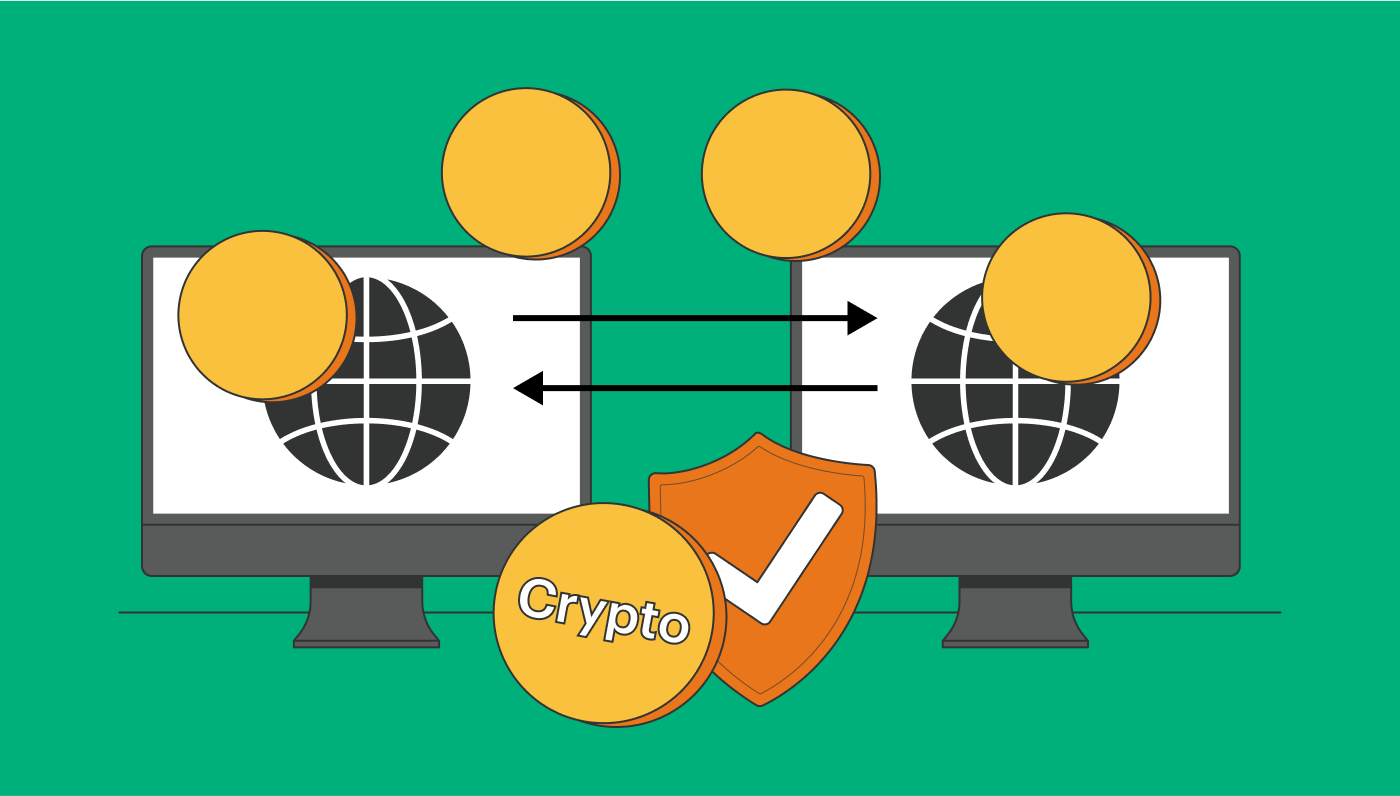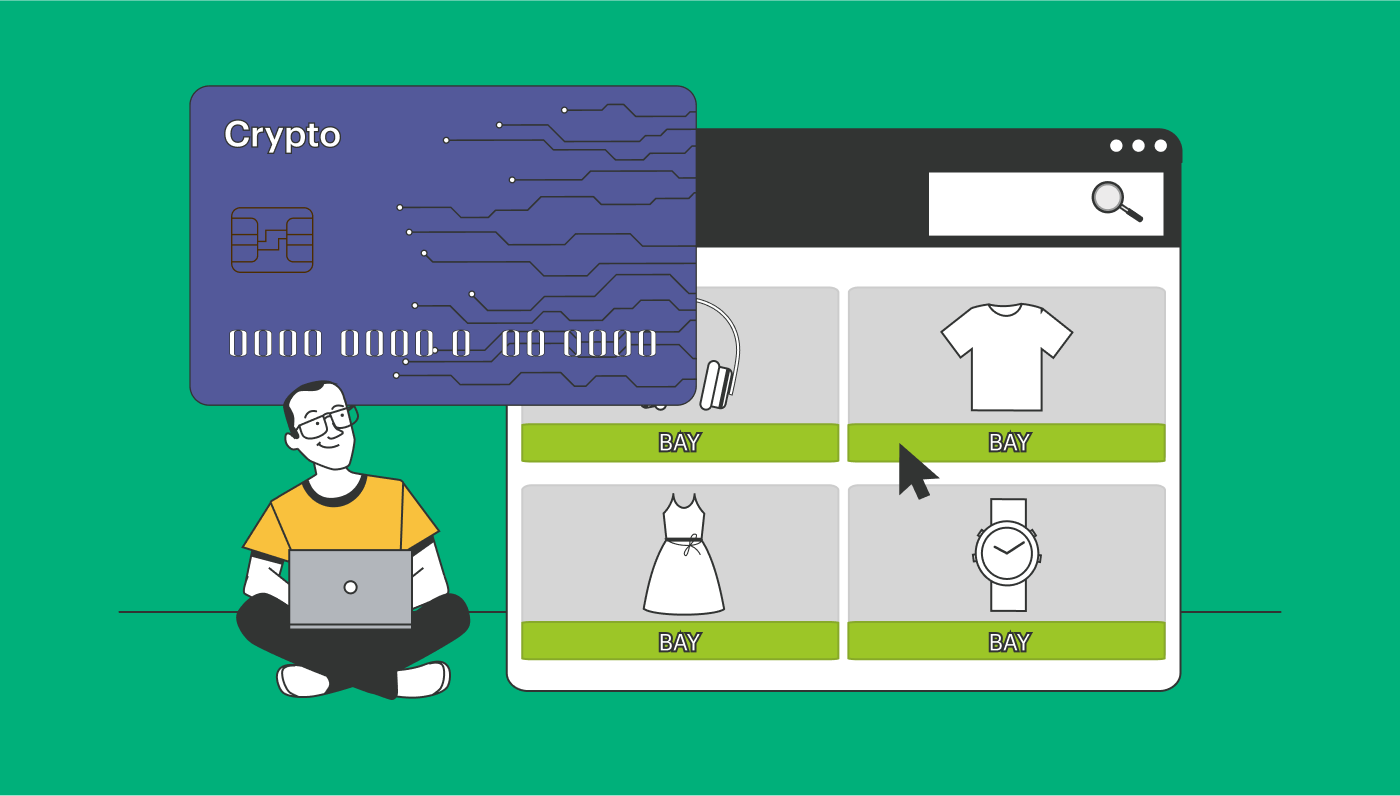8 Ways Cryptocurrency is Re-envisioning E-commerce
Blockchain technology has enabled cryptocurrencies to go far beyond being an alternative to traditional payment options. Digital assets are now bringing e-commerce into a new era of efficiency and security.
In this post, we’ll explore the impact cryptocurrencies are having on the e-commerce ecosystem and shed light on some of the exciting ways they’re reshaping how we navigate the digital marketplace.
Crypto is redefining how we conduct transactions and engage in the online world. It is opening the door to a global market for small businesses, overhauling payment mechanisms, and enhancing security to create a new era of e-commerce.
An Introduction to E-commerce
The e-commerce arena encompasses a variety of online commercial activities where businesses and consumers buy and sell products and services online. Let’s take a snapshot of the current e-commerce landscape:
Firstly, e-commerce has been experiencing a massive surge globally. In particular, mobile commerce has ensured that businesses can monetize customers with exceptional ease. An ever-growing number of consumers are gravitating toward online shopping for the wide choice, the highly competitive pricing, and the convenience of being able to shop from any location at any time.
Data analytics and AI have allowed for increasingly targeted marketing and product recommendations to create a more personalized shopping experience. Meanwhile, customers can also benefit from a more flexible choice of payment options. Security is a major factor in this growth, with payment gateways and encryption technologies guaranteeing safe transactions.
E-commerce giants are providing some of the highest retail standards with in-site reviews and ratings so that buyers can benefit from service and support equal to that offered in person, in brick-and-mortar businesses. Household names like Amazon, eBay, and Alibaba have enabled small-scale sellers to reach a huge international audience while consumers enjoy a massive array of products and competitive price options.

“Brick and Click” retailers are those with a physical and a virtual presence for displaying their products, and they offer the advantage of flexibility, enabling their customers to choose between online and offline shopping.
Driven by changing consumer trends and new technologies, the e-commerce landscape is continually evolving, meaning that businesses have to stay adaptable to remain competitive.
How Cryptocurrencies are Revolutionizing E-commerce
Now, let’s dive into the details of how cryptocurrencies are changing the game. Here are the top eight ways cryptocurrencies are making waves in the e-commerce landscape:
Decentralization
E-commerce platforms powered by the blockchain are entering the space, ensuring a more secure, decentralized marketplaces where users can engage in direct trade without intermediaries.
Smart Contracts
Smart contracts can be used to securely automate various aspects of e-commerce transactions. Great for boosting transparency and minimizing disputes, smart contracts are digital contracts stored on the blockchain. When certain predetermined terms are met, the agreement self-executes.

Cost-effective Transactions
Cryptocurrencies allow for cheaper and more efficient global transactions for e-commerce-buyers and sellers. Eliminating the need for currency conversion and cutting down on fees, which can be incredibly high for international transactions, crypto facilitates cost-effective cross-border payments. Cryptocurrency transactions also mean lower processing fees compared to traditional payment options.
Enhanced Privacy and Security
Leveraging powerful cryptography to mitigate the dangers of fraud and chargebacks, cryptocurrencies guarantee a secure space for online transactions. They also allow for advanced privacy options, enabling customers to safeguard sensitive financial data and conduct anonymous transactions.

Multiple Payment Methods
Cryptocurrencies open up a world of payment possibilities, so customers are not restricted to traditional options like bank transfers, credit and debit cards. Instead, merchants can offer a more diverse selection of payment methods that includes various digital currencies.
Tokenization
Physical assets can be tokenized by businesses by converting them into digital tokens on the blockchain. This makes for a simplified trading experience, while also facilitating fractional ownership. This is where the blockchain is used to divide assets into smaller units, represented by digital tokens. These tokens enable users to easily own a fraction of an asset, such as an apartment building or a work of fine art.
Novel Business Models
Cryptocurrencies foster innovation within the e-commerce space, ushering in new business models, like decentralized crowdfunding, micro-transactions, and subscription-based services.
Greater Global Access
Inclusivity is another great benefit for e-commerce consumers. Unbanked or underbanked populations can receive equal access to e-commerce opportunities, as cryptocurrency opens the door to online financial marketplaces.
These are the revolutionary changes that cryptocurrencies are introducing in the e-commerce arena, offering fresh opportunities, enhanced efficiency, and heightened security for merchants and consumers alike.
Looking Ahead
The future holds an acceleration in the evolution of developments at the point where cryptocurrencies and e-commerce intersect.
One of the primary trends likely to take off in this arena is stablecoins. As a result of their minimal price volatility, stablecoins, which are cryptocurrencies pegged to stable assets like fiat currency, have the capacity to offer a more stable means of exchange.
The growth of decentralized e-commerce platforms will reduce costs significantly, opening more opportunities for small businesses and individual sellers to access global markets, with no middlemen. Another anticipated development is the tokenization of high-end assets within the e-commerce arena, as fractional ownership makes investment accessible to a wider audience.
Cryptocurrencies are inching closer to mainstream acceptance. With more e-commerce platforms integrating cryptocurrency payment options, using crypto assets to buy everyday items will become simpler and easier than ever. In addition, cross-platform transactions will become increasingly seamless, boosting the usability of cryptocurrencies in e-commerce as interoperability between blockchain networks improves.

The potential for cryptocurrency to revolutionize how products are bought and sold online looks incredibly promising. As technology improves and regulation matures, cryptocurrency is likely to play a central role in facilitating online transactions.
We have seen this firsthand at ArbiSmart. Our leading an EU registered and authorized yield-generating wallet is designed to enable our users to safely store, buy, sell and exchange 30 different FIAT and cryptocurrencies.
rs who want to make purchases with their crypto can convert or withdraw their funds instantly, with ease. Alternatively, they can choose to place their crypto capital in a savings plan contract for as little as one month or as long as sixty months, to earn substantial interest that is paid out daily.

To find out more about the growth of crypto adoption, different types of digital assets, and trading strategies, as well as the rapid developments in blockchain technology, check out the ArbiSmart blog today!